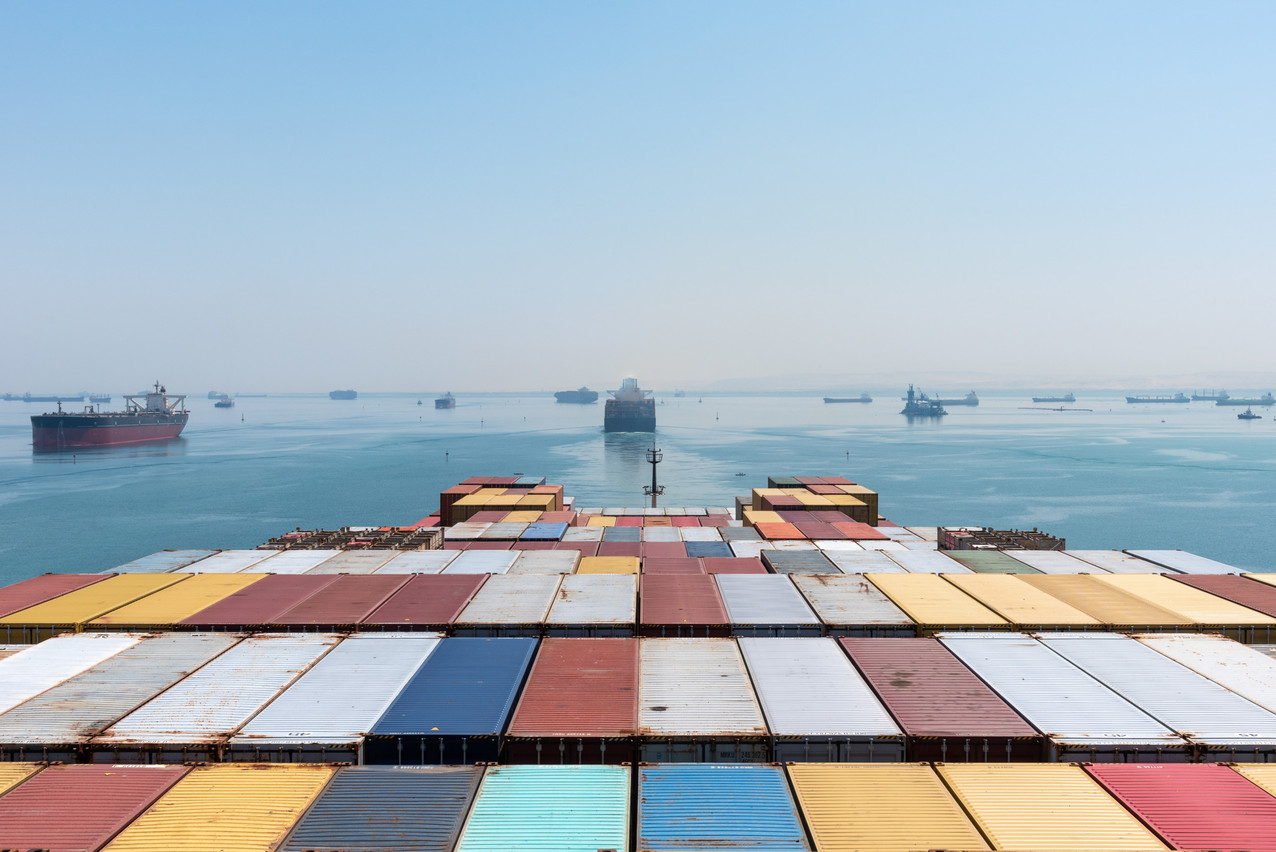The rating agency Fitch Ratings expects a decline in global trade growth, with consequences for the volumes of flows handled by ports. This situation is due in particular to geopolitical tensions which have prompted many multinationals to “de-risk” their supply chains since the first bottlenecks caused by the consecutive restrictions linked to covid-19 health measures in Asia.
Data collected by Fitch Ratings indicates that companies tend to build up inventories to mitigate risks to their supply chains. “Stockpiling exacerbates the supply chain crisis. While ports are earning more revenue from storage, their operating revenues have suffered as a result of increased waiting times,” the credit rating agency commented.
Companies prefer to build up stocks rather than relocate. “The typical risk mitigation would be to diversify your traditional customer or supply base. The difficulty is that there are now so many events adding up that it is difficult for companies to remain agile in such circumstances,” noted Morgan Terigi, co-founder and CEO of Incomlend, a B2B marketplace specialising in cross-border receivables financing.
From one block to another
In his professional capacity, Terigi is an observer of international trade. For example, he has been tracking the Ukrainian grain exports in turmoil since the invasion of Russia: “When you start to have a lot of companies looking for alternative suppliers, the price of supplies goes up and so do the financing costs.” The phenomenon is beginning to affect fertiliser supply chains.
So-called ‘hard’ commodities, including metals, are also affected. “We have seen many metal orders delayed or rerouted via other countries,” he said.
Read also
It’s not just rising geopolitical tensions and health restrictions that are impacting trade flows. In Europe, the ghost of Brexit is still being felt. According to a study by the London School of Economic, trade volumes between the UK and the continent since January 2021 due to the administrative and customs formalities that have resulted from Britain’s split-up with the single market.
The rising cost of finance
The post-Brexit situation, health restrictions, war in Ukraine... “There are many events that overlap each other”, observed Terigi. This creates a domino effect: “When trade is disrupted, commercial operators tend to find new routes to ship goods. As soon as they make these changes, the risks increase. And as the risks increase, so do the financing costs.” Added to this is the fact that “75% of transactions are denominated in dollars, which has absolutely increased”.
However, the situation does not prevent investors from continuing to finance receivables related to shipments of goods. Incomlend puts traders in touch with investors. “The advantage of this type of investment is that it is very liquid, as it is not correlated to the financial markets,” said Terigi. “We typically look at 75 to 90 day deals. It’s a very short cycle that reduces risk.”
Traders receive funds before the goods are shipped and can pay their suppliers and employees. At the end of the cycle, they repay the investor with an interest rate. This is a type of direct financing of the real economy with a quick return on investment of up to 9% in some cases.
Read the original French version of this article on the site. This article was published for the Paperjam + Delano Finance newsletter, the weekly source for financial news in Luxembourg. .
